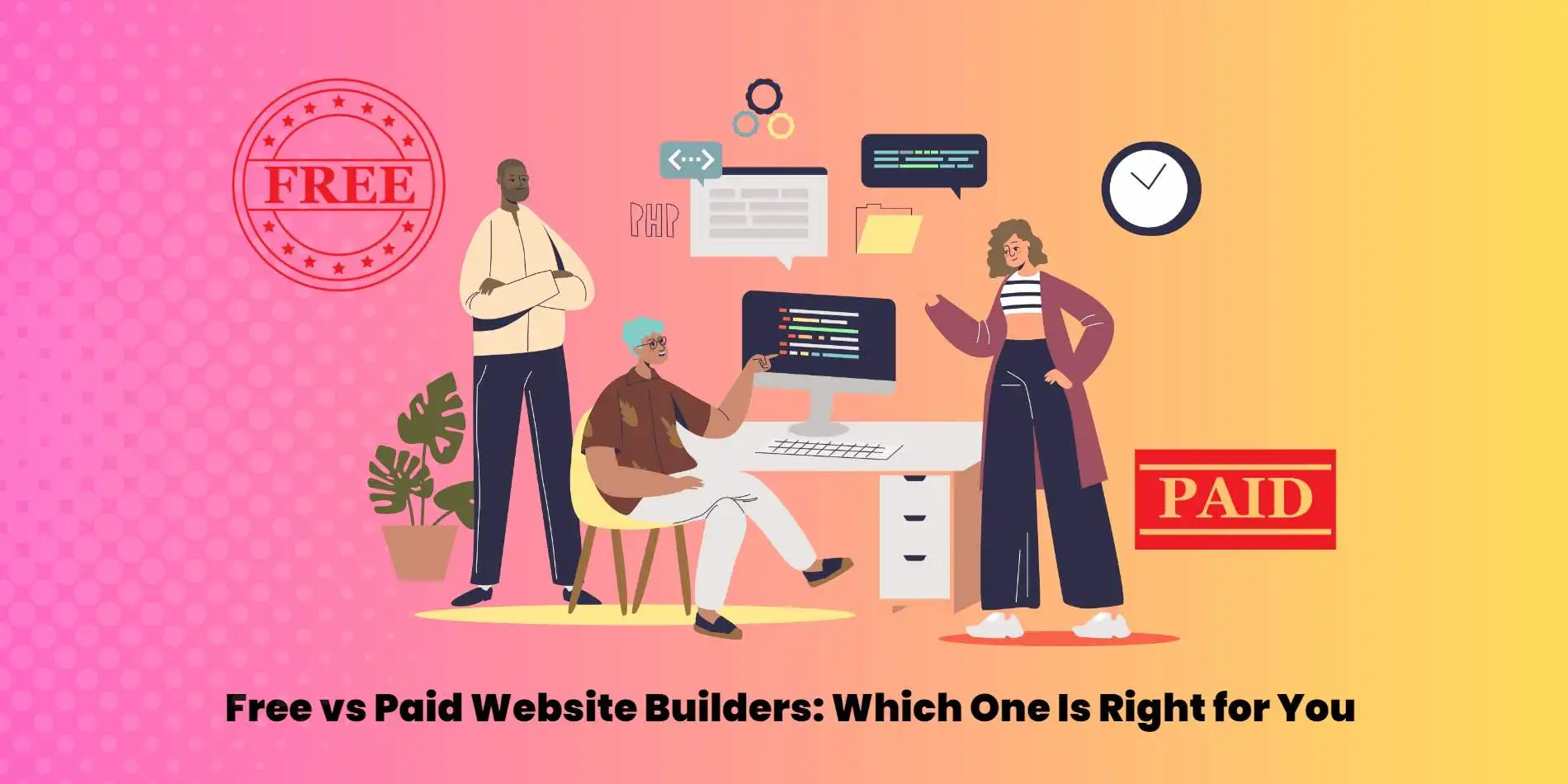
Building a website has never been easier, thanks to the proliferation of website builders. These platforms offer user-friendly tools to create professional-looking websites, even for those with no coding experience. However, one significant decision you’ll need to make is whether to opt for a free or a paid website builder. Both options have their pros and cons, and your choice depends on your goals, budget, and priorities. Let’s break down the key differences to help you make an informed decision.
- Cost Considerations
- Free Website Builders
The most apparent advantage of free website builders is that they cost nothing upfront. This makes them an attractive choice for hobbyists, students, or anyone experimenting with creating a website for the first time. However, free plans often come with significant trade-offs, such as limited features, storage, and bandwidth. - Paid Website Builders
Paid plans require a monthly or annual subscription, with costs ranging from as low as $5 to over $50 per month, depending on the platform and features. While it’s an investment, the value lies in the premium benefits such as a custom domain, ad-free experience, and advanced tools to enhance functionality and design.
- Free Plans
Free website builders typically include the platform’s branding on your site. For example, your URL might look like yourname.weebly.com or yourbusiness.wixsite.com. This can appear unprofessional, especially for businesses, and limit your credibility. - Paid Plans
Paid plans allow you to use a custom domain (e.g., www.yourbusiness.com), which looks more professional and builds trust with your audience. It also ensures that your site is free from third-party branding, giving you full ownership of your online presence.
- Free Plans
Most free website builders come with basic templates and limited customization options. Advanced features like e-commerce functionality, SEO tools, or integrated analytics are often locked behind a paywall. Additionally, free plans might restrict the number of pages you can create or the type of media you can upload. - Paid Plans
Paid plans unlock a full suite of features, including high-quality templates, unlimited customization, and essential tools like email marketing integrations, advanced analytics, and e-commerce capabilities. These features are vital if you want to scale your site or offer a seamless user experience.
- Free Plans
With free website builders, storage and bandwidth are usually limited. This can result in slower loading times, limited media uploads, or even your site going offline during periods of high traffic. - Paid Plans
Paid plans often include higher storage and bandwidth allowances, ensuring your site performs well even during peak traffic. This is crucial for businesses, blogs, or portfolios that rely on visual content or heavy user engagement.
- Free Plans
Support for free plans is typically minimal. You might have to rely on FAQs, community forums, or online tutorials to solve issues. - Paid Plans
Most paid plans offer dedicated customer support via live chat, email, or phone. Some platforms even include priority support for higher-tier plans, ensuring that technical issues are resolved quickly.
- Free Plans
Free plans often display ads on your website, which can detract from the user experience and dilute your brand identity. Furthermore, monetization options like ad integration or affiliate marketing may not be available. - Paid Plans
With paid plans, your website is ad-free, creating a cleaner, more professional appearance. You also gain access to monetization tools, allowing you to earn revenue through ads, affiliate programs, or direct sales.
Free website builders are ideal for:
- Personal Projects: A simple blog, resume site, or portfolio.
- Beginners: Individuals learning web design basics without financial commitment.
- Temporary Use: Projects or events that require a short-term online presence.
Paid website builders are best for:
- Businesses: Professionals and companies that need a polished, credible online presence.
- E-Commerce: Anyone planning to sell products or services online.
- Scalability: Websites expected to grow in size or functionality over time.
The choice between a free and a paid website builder depends on your goals, budget, and the level of professionalism you want to achieve. While free plans are great for personal use or experimentation, they often fall short for businesses or serious projects. Paid website builders, though an investment, offer better tools, customization, and long-term scalability.
Consider your needs carefully and choose the option that aligns with your objectives. Remember, your website is often the first impression people have of your brand or work—make it count!
